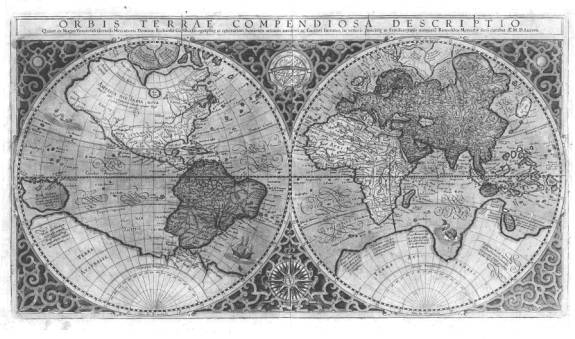LITR 5734:
Colonial & Postcolonial Literature

Sample Student Final Exams 2008
Essay 1: Describe and evaluate your learning experience or learning curve (Objective 3 + others)
corey porter!
What Gives: The Cooption of the Colonizer by the Colonized
After a second semester of colonial/postcolonial lit, I feel as if Iím searching for the same thing I was missing in the first go Ďround: an answer, a catalyst, or pattern or somethingóa specific tangible that changes with a society shedding its colonial shackles. I want to be able to point to an apex, to where attitudes change and that shift is reflected in literature. What Iím beginning to realize, however, is that such a society doesnít exist until it becomes postcolonial, that is, the society is not a constant which is changed by the arrival of a colonizer; rather, when the colonizer is initially introduced to the colonized, the period of their interaction becomes the incubation for a future society, one which is first born when the colonized cast off their colonizers.
Looking at the syllabusóspecifically at the pairs of novels we readóa pattern does present itself: the colonial novel is always written by a colonizer and the postcolonial novel is always written by a colonizee. I think what Iím looking for are examples of how a societyís perception of itself changes with the introduction of a colonizing force, so ideally Iíd look to literature written by members of such a society before and after colonization, contrasting the two works and theorizing on the origins of the discrepancies. (Iíd assume the colonizer would be the cause of such changes and find evidence to support that belief.) However, taking into account my newfound revelation of the two distinct societies (pre- and post-), any evidence that would suggest changes would be irrelevant. Also, Iíd be hard-pressed to find any precolonial texts. Why? Iím turning to Occamís razor and something I think we only briefly discussed in class: The colonizer introduces the novel as a literary form to the colonized.
Before the British come to India in the 16th century (and really, following their arrival and up until the 20th century), its literature is comprised mainly of the Vedas, Hindu epics, poems, etc. Frankly, the novel as a form of literature isnít around for another two-hundred-or-so years. Thatís not to say Indian ideals, values, representations of culture, beliefs, et al arenít present until the birth of the novel, but instead that they are just presented in different formats. Truly, itís Europe and its novel that give a voice to postcolonial India, in part thanks to colonialismís popularization of all-things-Europe.
What I now find amazing is how we neglected to talk about this in class (or if we did, I was in space) other than skirting it once or twice, because we most definitely discussed colonizer influence in regards to what happens in the novels. Itís surprising that we didnít apply the same principle to the novel in some kind of meta-discussion of literature. In Train to Pakistan, we see the trains the British brought to India operating without the British. The trains are an example of something introduced by the colonizer and coopted by the colonized to serve a new purpose. In this instance, however, itís not so pretty. Regardless, itís an example. Lucy presents a similar situation: Lucy leaves home for employment and educational opportunities unavailable to her in the West Indies. While itís America Lucy comes to, and not England (who was active in colonizing the Caribbean), they are more or less interchangeable. The two countries are incredibly similar in culture, but more importantly, are both representative of Western thinking. Or opportunity. Lucy leaves her home in search of what America offers her in terms of employment and educationóthe colonizer introduces these advantages to the colonized, who then coopts them into her desires.
Ultimately, this assumption of culture (or trains or educational opportunity) is the beginning of the second (postcolonial) society, which often has very different values than that of the first (precolonial). The partitioned India in Train may be more comparable to the British Empire than it is to the precolonial subcontinent. I argue this not because the ideals, values, representations of culture, beliefs, et al are significantly different from those of the first society, but because once technology (sanitation, infrastructure, etc.) is introduced, it cannot be revoked; it will only progress. Simply, the second society will be unable to relate with the first on some levelsóthat is, the second society wonít pine for ďthe good olí daysĒ without running water or a widespread educational system.
I think this division becomes even more pronounced in the third generation, when postcolonial parents (who might remember the days of precolonialism) make room for a new wave of kids raised with the comforts (also: new problemsóI donít mean to sound as if the colonizer is Prometheus, maybe more like Pandora. In fact, third generation lit like The Namesake or nearly any of the Walcott poems we read seems like life is a continuous struggle) of the colonizer. Instead of dealing with an outside force or influence, this third gen is searching internally for identity.
